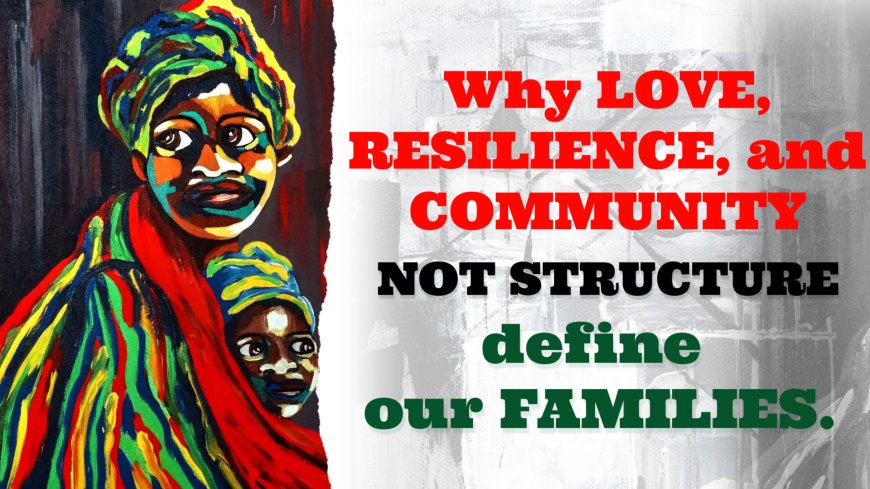Strength in Every Shape: Redefining Family Through My Story

When I hear statements that define a “strong African family” strictly as one made up of a father, mother, and children, I can't help but think of my own family. I have been brought up in a home where love, resilience, and strength were raised not within the confines of that narrow definition, but beyond it.
Last week, I came across several social media posts insisting on this limited definition. One comment on Facebook, for instance, declared that any deviation from the mother-father-children model was "nonsense" and a distortion of the "strong African family." Last week during the international day of family, I read several tweets and comments across the social media claiming that strong families are those that have a mother, father and children. For example, someone wrote on facebook “There are some people who are trying to distort the meaning of a strong African family. A strong family has a father, mother and children. Everything else is nonsense.”
These words stung. They didn’t just sting because they were wrong but they stung because they erased people like me. I am an orphan, raised by a single mother alongside my three siblings. Our father was absent, but we never lacked strength, discipline, or love. My mother, a woman of quiet power and fierce determination, made every sacrifice imaginable to raise us with dignity. She taught us values that many traditionalists would claim are only found in nuclear families. Does the absence of a father mean our family was weak? Does it make our love, our laughter, our unity any less valid?
Across Africa, the definition of family has always been diverse. In many communities, extended families have played central roles in raising children. Grandmothers are often second mothers. Cousins are raised as siblings. In times of hardship, neighbors and friends step in as caregivers. These are not new concepts, rather the African traditions that we have witnessed over the years. The modern notion that family can only be legitimate when it fits a particular mold is not only historically inaccurate, but it is also deeply harmful.
The truth is, African families have always been adaptive. From the rural villages of Meru, to the informal settlements of Nairobi, families take many forms. War, migration, HIV/AIDS, poverty, pastoralism, and political instability among others, have shaped new family structures, often out of necessity. But necessity births strength, and strength builds community.
Today, we also see the rise of chosen families, networks of support formed among friends, especially among young people, queer communities, or those rejected by their biological families. These are spaces of safety, affirmation, and love. Are we to say they don’t count as families?
To insist that only a household with a father, mother, and children qualifies as a “strong family” is to erase the lived realities of millions of Kenyans and other African communities. It dismisses the single mother who wakes up before dawn to provide for her children, like my mother. It dishonors the grandmother raising her orphaned grandchildren. It silences the young adults creating support networks where none existed before.
We need to stop using rigid definitions to judge the worth of families. Strength is not about structure. It is about love, care, resilience, and the ability to nurture and grow despite challenges. My mother raised four strong, responsible children on her own. I carry her legacy with pride. The African family is not broken because it evolves. It is strong because it bends without breaking. Let us honor that strength in all its beautiful, diverse forms.
Ms. Kathia is a Human Rights Defender and a communications specialist
What's Your Reaction?














































































































